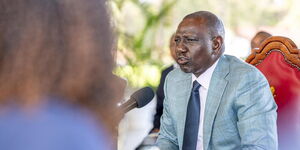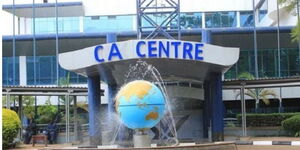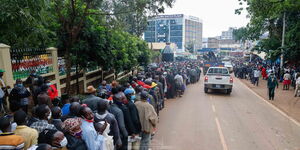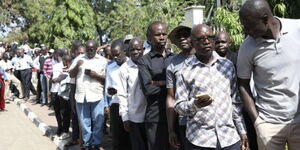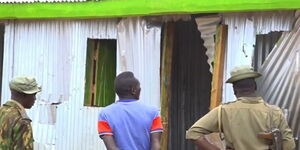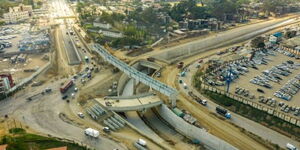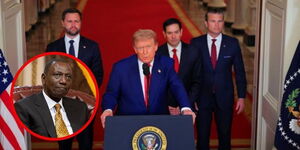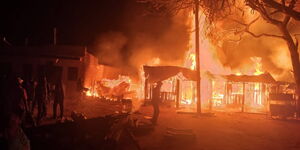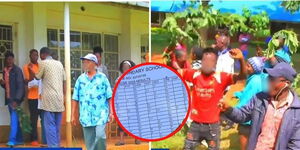The billionaire owner of Royal Media Services, Citizen TV's parent company, Samuel Kamau Macharia ranks among Kenya's most respected tycoons but very little is known about his tough journey to the top.
In a book titled, A Profile of Kenyan Entrepreneurs, the media mogul detailed his tedious journey from the son of a peasant from Gatanga in Murang'a County to the echelons of power.
After he received a scholarship to study in the US, the billionaire, who is commonly known as SK, travelled aboard a truck and it took him nine months to get to New York.
While in the perceived land of milk and honey, he had to work part-time jobs in order to pay for his school fees and basic needs.
Macharia, however, took some time off while in US to have fun with friends in various activities including parties and road trips.
At the time, the two authors of the books indicated that it was relatively easy to own a car since some automobiles went for $50, which though valuable at the time, was an attainable sum.
Macharia and his friends discovered that using their personal cars on long trips would damage them so they devised a new trick to hire cars.
They would take cars out for test drives which they would use to make long trips and return them before the time lapsed. On one such escapade, the team had planned to attend a friend's graduation party.
"One time, SK Macharia and his four friends decided to attend the graduation of their other friends in Eugene, Oregon, about 300 miles (roughly 482km) from Seattle. They went to a car dealer and got a car as was the norm," detailed the book.
The car, however, broke down at night before they could safely return it to the dealers and the team decided to hitchhike back to Seattle hoping that he (the dealer) 'wouldn't be able to trace any of the five African students among the many in the country.'
The five were, however, arrested three months later and charged with grand theft auto (stealing a car), which was a very serious crime.
The trial suffered a hitch in the subsequent months after the defendants argued that they wanted to defend themselves in the Kikuyu language but there was no translator in site.
"By choosing an indigenous language, they reckoned that an interpreter fluent in the language would be difficult to find.
"As it turns out, they were right. At the time, Kenya did not have an embassy in Washington: it just had a United Nations representative in New York," explained the authors.
When the prosecutor appeared in court, he said that he had been unable to find a Kikuyu interpreter and that the only way one would be availed is if he was flown from Kenya.
On that basis, the judge dismissed the case.


